A Ukrainian oil depot hit by a Russian missile © Nrf 
“We in the European Parliament, across party lines, stand in solidarity with the people of Ukraine and their courageous fight against this war of aggression, totally unjustified, started by the Russian Federation,” said David McAllister as the first speaker in a seminar designed to mark one year since Vladimir Putin sent his forces, without any provocation, into a sovereign country in an act of out-and-out invasion. He has always said – and still does – that it’s not a war his troops are waging (however much it may look like one), it is instead a “special military operation”. However, it involves soldiers using powerful weapons to destroy cities, flatten people’s homes and kill unarmed civilians. So it looks very much like a war. “This is not only a war of aggression, totally unjustified and illegally started by the Russian Federation,” McAllister continued, “This is a very, very sad anniversary.” In case anyone needed reminding, he also said this is not only a war of aggression by the Russian Federation against Ukraine. “The European Parliament has supported all the activities of the Member States and the Commission in supporting Ukraine,” McAllister said, also pointing out that MEPs are pressing the Commission to open accession negotiations for Ukraine this year. This is clearly not, nor ever was, Vladimir Putin’s intention when he launched this vicious, destructive war. Indeed, his motivation remains obscure, unless it is purely self-love and concomitant self-delusion. If so, he would seem to have sacrificed the lives of thousands of young Russians on the altar of his overweening ambition and self-absorption. McAllister repeated his group’s call for a special tribunal to be set up to try Putin’s minions and his military leadership, “And also we call for a full set of sanctions against all companies and individuals that are still trading with Russia.”
Putin had claimed – falsely and without any supporting evidence – that his aim was to fight Naziism, on the untrue basis that Ukraine was a Nazi and antisemitic country. As the New York Times put it recently, “He has characterised the war in Ukraine as a fight against Nazis’ who are backed by the West.” He also claimed that it’s a kind of ‘holy war’ for ‘Russia’s very identity’, arguing that the country was, in the words of the New York Times, “fighting to prevent liberal gender norms and acceptance of homosexuality from being forced upon it by an aggressive West.” As for ending this war, “Peace will come with Ukraine’s victory,” said Nathalie Loiseau, the French MEP who chairs the Parliament’s Sub-Committee on Security and Defence (SEDE). A member of the RENEW political group, she was participating in the Strasbourg seminar. “There is no alternative,” she said, “for Ukraine to recover its sovereignty, its territorial integrity.”
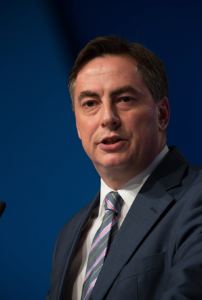
Territorial integrity is not the only source of concern in Putin’s ever-more-conservative Russia. To put some meat in his spurious claim that the West is seeking to undermine what it means to be “Russian”, Putin’s tame and obedient parliament has introduced laws intended to make life tougher for those not complying with his idea of what being a Russian means. For example, a young man who calls himself Danya is emigrating to France because newly-passed laws ban “propaganda of non-traditional sexual relations” – and Danya makes a living from a drag act. He couldn’t afford the huge fines his work could bring him. He told a Western journalist that he is now very frightened and that the concomitant 400,000 rouble (over €5,325) fine would be beyond his reach. He also said that living in a country where it’s illegal “just to be yourself” makes him very afraid.
The progression of Communism as a political ideal was always slow and irregular. Many of its famous faces met untimely ends, like Leon Trotsky, a brilliant Marxist thinker who split with Lenin in a bitter, long-lasting dispute, although they healed the rift in 1917, only to be murdered later, on Stalin’s orders. When he was living a life that he found embarrassingly luxurious in a dacha in Gorki (probably too large and luxurious to qualify as a normal dacha), that was not far from Moscow, Lenin had a staff of four bodyguards on permanent duty, plus three domestic staff. Among them, cooking for him and Nadya, was Spiridon Putin, whose grandson, Vladimir, would one day come to rule Russia. It’s not clear if Lenin would have approved of that grandfather’s politics (which probably mirrored his own) although he may not have had much objection to the grandson’s methods, however unpopular.
| DONATIONS CAN VARY
“Right now, more than €3-billion have been dedicated to sending military equipment to Ukraine,” Nathalie Loiseau told the seminar, “and the European Union is committed to go further.” Some of the financial costs are being met from surprising sources, too. According to journalist Will Lockett, writing for the Medium website.
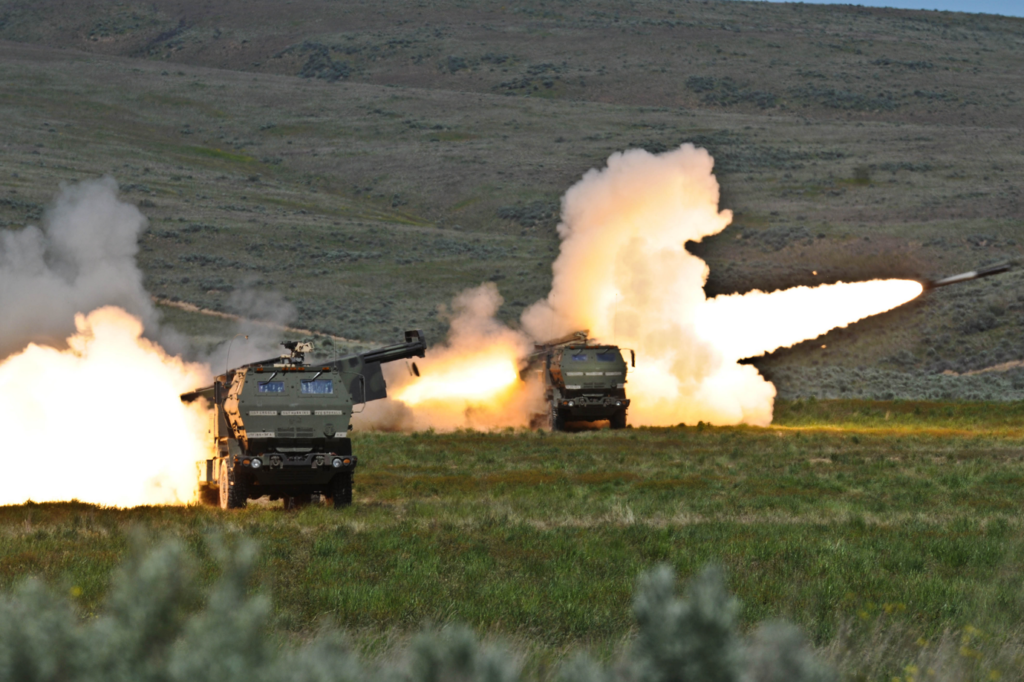
He says that examining the sources will throw up some surprises. Ukraine has made itself open to donations of crypto currencies, which allows totally anonymous donations to be made. Not all those donations are being spent on military hardware; quite a lot is going to Ukrainian citizens in need of humanitarian aid. Such donations are supposed to be largely anonymous and untraceable, but in reality they seldom are. Putin is, of course, famously brutal towards his dissidents, which encourages those who have money to spare to send it Ukraine’s way. Ukraine has received more than 100,000 individual crypto donations, with sums ranging from a few dollars to billions. Some of the money was sent from Russia. “Some Russians were donating to us significant sums,” said Alex Bornyakov, a deputy minister in the Ukrainian government. The same article mentions data from UK intelligence, suggesting that many Russians are growing tired of Putin. Mothers are noting, of course, that conscripted sons aren’t coming home, while adolescents have been fleeing to Kazakhstan to dodge the draft.
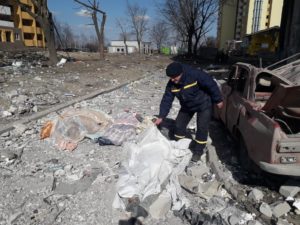
This does not mean, however, that Russia aims to end this war any time soon. Arguments inside the Kremlin are not over whether to persecute or simply end the war. They’re about how best to take it forward. A minority that doesn’t support Putin’s imperialism won’t bring the fighting to an end, although it may plant a small seed of opposition that may possibly grow. Eventually. “Our message from the European Parliament to the Member States,” said Loiseau, “is that they should decide faster and without hesitation on their military support for Ukraine, because the current situation is a difficult situation. Every delay costs human lives in Ukraine.” It’s a sobering observation. But could the EU – especially the European Parliament – do more? “Europe is defending our common values,” said Vsevolod Chentsov, the Ukrainian diplomat who heads the Mission of Ukraine to the European Union and the European Atomic Energy Community. “This is a fight for democracy, and yes: Ukraine is bearing the highest cost. We must ready ourselves to withstand another type of Russian aggression, of Russian attack, on the east of Ukraine.” Chentsov also reminded those taking part of an essential message to Russian industry: “You cannot be part of the Russian offensive and at the same time build nuclear plants and service nuclear plants in Europe”.

Definitely, we need new solutions for ammunition and for arms supplies, and in that context, we definitely support the idea of our Estonian colleagues to set up an additional and substantial financial vehicle to accelerate production of ammunition and the target is, as far as I know, to produce another one million rounds of 155 calibre ammunition over six months. We need huge resources; we’re talking about a few billion euros.” It’s worth bearing in mind a clarification made by Loiseau: “We are not at war with Russia. We are not sending troops to Ukraine. That has been clear from Day One, but Ukraine is in a situation of self-defence.” So far, of course, it has been resisting Russia’s aggression remarkably successfully. If Putin thought his troops would simply march in and take over as easily as they did in Crimea, he has been very clearly proved to have made a completely wrong judgement. On his recent unannounced visit to Kiev, US President Joe Biden promised a further $500-million of weapons, including artillery ammunition, anti-armour systems and air defence radar systems, as well as tighter sanctions against Russia.
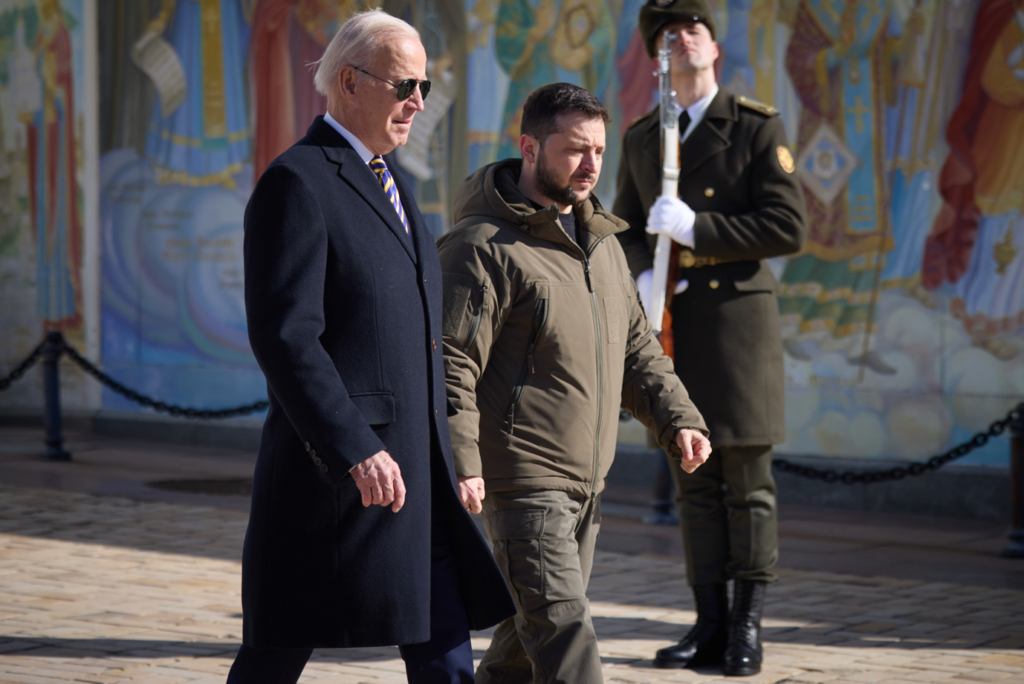
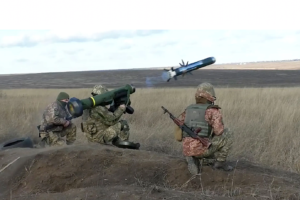
McAllister mentioned the fact that training Ukrainian troops in the effective use of the new, more powerful battle tanks the EU is now supplying is a slow process. It takes time, if their presence is not to be wasted. “In the end,” he said, “it’s about helping Ukraine to use its legitimate right to defend its own territory and sovereignty.” I asked the panel how much the EU can legitimately do to defend friendly countries when the body was set up to deliver a peaceful future in the aftermath of a world war. It was Loiseau who replied: “If you want to defend peace, you have to have a strong European defence, and that is what Europe is building now.” We mustn’t forget that tyrannical regimes in central and eastern Europe are not supporters of the EU or NATO, with one right-wing columnist in a Hungarian newspaper describing the EU as: “an evil empire and the most inhumane tyrannical regime in history.” The writer had similar views about NATO, apparently favouring Putin as an example of fairness and misunderstood innocence, just trying to free Ukraine from Nazis. If it was true, the EU would have had no problem defending Ukraine. Simply bombing Moscow could have been suggested and could have made a difference. But the EU doesn’t work that way.
| KEEP HOPING
There are other options, however, flagged up in dogged determination. “Ukraine will survive,” said Chentsov, “Because we have no other choice.” “We have shown, within the EU 27 and with our Western allies, the United States, Canada, the United Kingdom, just to mention three,” McAllister said, “that we have sanctioned the Russian Federation for this outrageous war; nine sanction packages have been adopted, the tenth will be adopted soon. And on the other hand, the support we have given to the brave men and women in Ukraine, to the country, the financial support, the economic support, the unitarian support, the military support through the member states, and if you add all the support the European Union and its member states have given, you’re up to around €50-billion.” He also mentioned that the EU is now more than ever engaged in its own defence. Putin has turned a peaceful organisation into a more warlike one, prepared to defend itself, which is presumably the very opposite of what he intended.
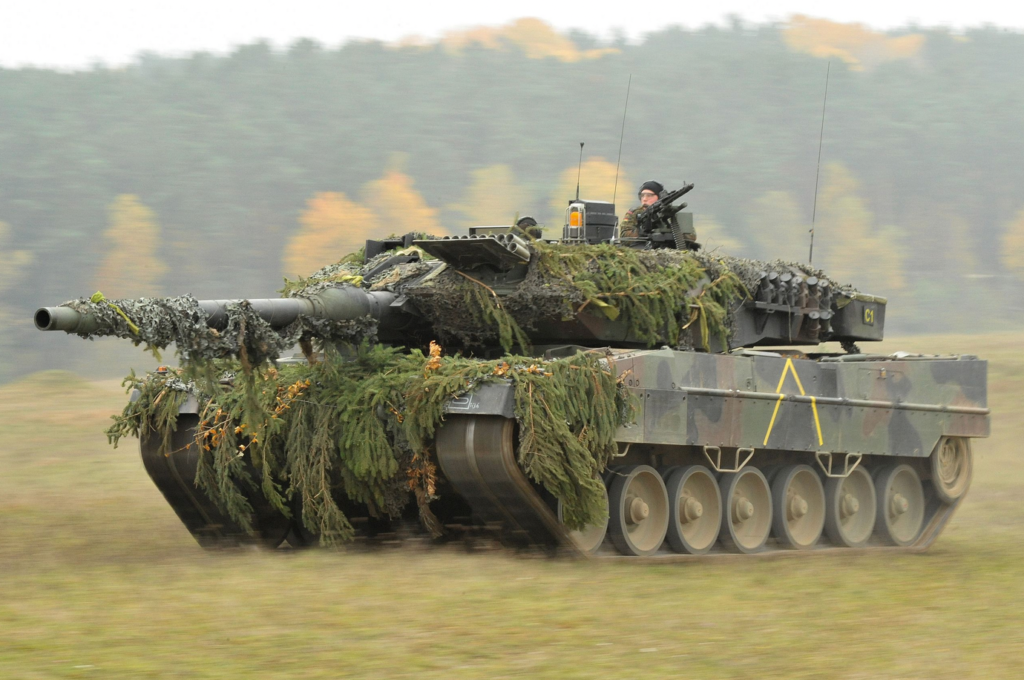
Writing in the New York Times, Aleksandr Daniel, an expert on Soviet dissidents echoed that view. “A new system of values has been built,” he wrote, “Brutal and archaic public values.” I’m not sure if that counts as progress. Another activity in which the EU has had to become involved is the closing of loopholes through which Russian goods can evade the various sanctions. There have been cases in which, for instance, Russian gas has reached European markets under the guise of being from some other country.
There were two separate panels to discuss the problems thrown up by Russia’s war and the European Union’s reaction to it, the second one dealing with energy issues. That’s important because Russia had been such a major source of the energy Europe consumes. It was clearly impossible for the EU to simply sit back and do nothing in response to Russia’s unprovoked aggression. “The first thing we did, to mitigate the economic sand the social impact,” said Margarida Marques during the second of the two on-line seminars chaired from Strasbourg. She is Vice-Chair of the Budgets committee and a member of the S&D Group, “was to give member states the chance to change, to adapt their national recovery and resilience plans.” It clearly meant a change of direction after they had already adjusted their plans once to confront the threat posed by the COVID pandemic. “Energy is very relevant in the current context,” warned Cristian-Silviu Buşoi, the Romanian Chair of the European Parliament’s Committee on Industry, Research and Energy (ITRE Committee), speaking to the seminar from Bucharest. “The crisis started a little bit before the illegal invasion of Ukraine by Russia, and this situation was exacerbated by the war, by this illegal and unprovoked invasion.”

The EU has been obliged by Russian aggression to take a more warlike stance on the world stage and to deal with unforeseen consequences arising from Putin’s territorial ambitions. The EU budget was agreed before Putin sent his troops to invade Ukraine, so financially things will have to change. “We need to invest a lot to support the Ukrainian people arriving in EU countries,” said Marques, “and this budgetary line is completely empty. And there are new strategies, for example, and know that we need to consolidate, to increase our strategic autonomy.” Remembering my many years as a journalist following the European Parliament in Brussels and (as in this case) Strasbourg, I recalled how difficult it had often been to build a consensus on any contentious point, even within a single political group, and I asked if it was possible to get sufficient agreement for the Parliament to take unified and effective action. “I think there is a strong determination in most of the EU leadership to support Ukraine,” Buşoi replied, “This is very clear. And to sanction Russia. Sometimes of course there are disagreements. I mentioned sanctions related to the oil products and petroleum. Some of the member states were in a very difficult position, others are like Hungary of course, who are playing us political games here, but finally the sanctions were imposed, and they will harm Russia’s ability to finance the war and their ability to keep Europe in a sort of dependency.”
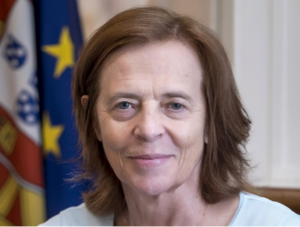
It’s generally agreed (although perhaps not in Hungary) that being dependent on Russia for anything that is essential is not a good idea. Marques agreed that it’s important (if not necessarily easy) for the EU to stick together. “Yes,” Marques agreed, in reply to a question I had posed about the difficulty of keeping the different political factions singing from the same song sheet and, most importantly, in the same key. “Unity is a key point for our strategy.” She stressed the point in a debate in the Chamber but also pointed it out during this seminar that her co-rapporteur (co-writer of the report that was under debate) is from the EPP, the Centre-Right group; Marques sits with the Socialists. The two groups seldom agree completely on political points but in response to Putin’s aggression they do. Their cooperation and agreement on key points is very significant.
| WAR TALK
Putin is certainly trying to capitalise on the illicit war he started by invading Ukraine. He is using it as an excuse to withdraw from the New START treaty which aims to limit the numbers of nuclear weapons in circulation. That may not be a surprise, given that Russia has the greatest number. Meeting the terms of the New START treaty would mean giving some up. Although the war began when Russian troops invaded Ukraine, using Putin’s claim that he was eradicating Nazis (who didn’t exist) as his excuse. He told his people that the war is the West’s fault and that the Ukrainian people are being used as cannon-fodder. One is forced to wonder if that includes the Ukrainians living in tower blocks Russian missiles have flattened. He accused the West of normalising paedophilia and sexual deviancy and even of promoting it. It’s frankly hard to understand where his claims come from. I do not recognise the West he portrays, characterising it as morally corrupt. It’s certainly not what Loiseau meant when, during the seminar, she referred to member states undergoing “a cultural revolution”. The EU has been, since its foundation, a peace project, seeking to unify nations, certainly not the bestial and amoral civilisation Putin characterised in his very strange (and belligerent) speech.
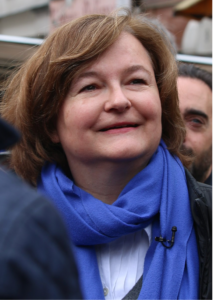
Pastors in the protestant Church of England will not recognise their church as Putin portrayed it. “As it became known, the Anglican Church plans to consider the idea of a gender-neutral God,” he told his audience. “Millions of people in the West understand they are being led to a real spiritual catastrophe.” No, they don’t, because they are not. The main difference between East and West is that people are free to argue their point of view without fear of arrest or execution. In Putin’s strange and unrecognisable version of “reality”, that would not be the case. The only real danger, perhaps, is that people listening to his rambling speech might actually believe it. One of my old school friends became a Church of England pastor and he in no way fits within Putin’s description. In it, he claimed that priests are “forced” to perform marriages for same-sex couples. Sorry, Vlad: they’re not. I do believe the parts of his speech in which he talked about building new industry in those parts of Ukraine he has “liberated” and made into just another part of Russia. Hitler made similar claims when he was trying to take over Europe for the Nazis that Putin claims to be fighting.
According to the France 24 news site, the Ukrainian government says Russia has deported more than 16,000 children from territories it occupied in the wake of last year’s invasion, including orphans who were taken without the consent of their legal representatives.
Ukrainian officials say they have succeeded in bringing back more than 300 children. But it’s a long and arduous process, according to journalists who have visited the area. Putin’s speech has been met with a cold response in areas not under direct Russian control. Italian Prime Minister Giorgia Meloni described it as “propaganda” and said she had hoped for something more constructive. “A part of my heart hoped for some different words, for a step ahead. It was propaganda,” Meloni said.

She was visiting the Ukrainian city of Irpin at the time. NATO chief Jens Stoltenberg echoed US concerns that China may supply Russia with weapons to help it pursue its war against Ukraine, though to what end is hard to tell. Russia invasion has not gone well, and Putin’s forces have suffered many reverses, but Putin still claimed that a victory over Ukraine is “inevitable”. Even so, one Ukrainian presidential aide said that Putin’s speech merely served to prove that he has “lost touch with reality”. We just have to hope that his index finger has also lost touch with the nuclear launch button. It would appear that the only conclusion to be drawn from what Putin said is that he has no intention of halting his aggression or entering into peace negotiations. It’s going to be a very long war.

